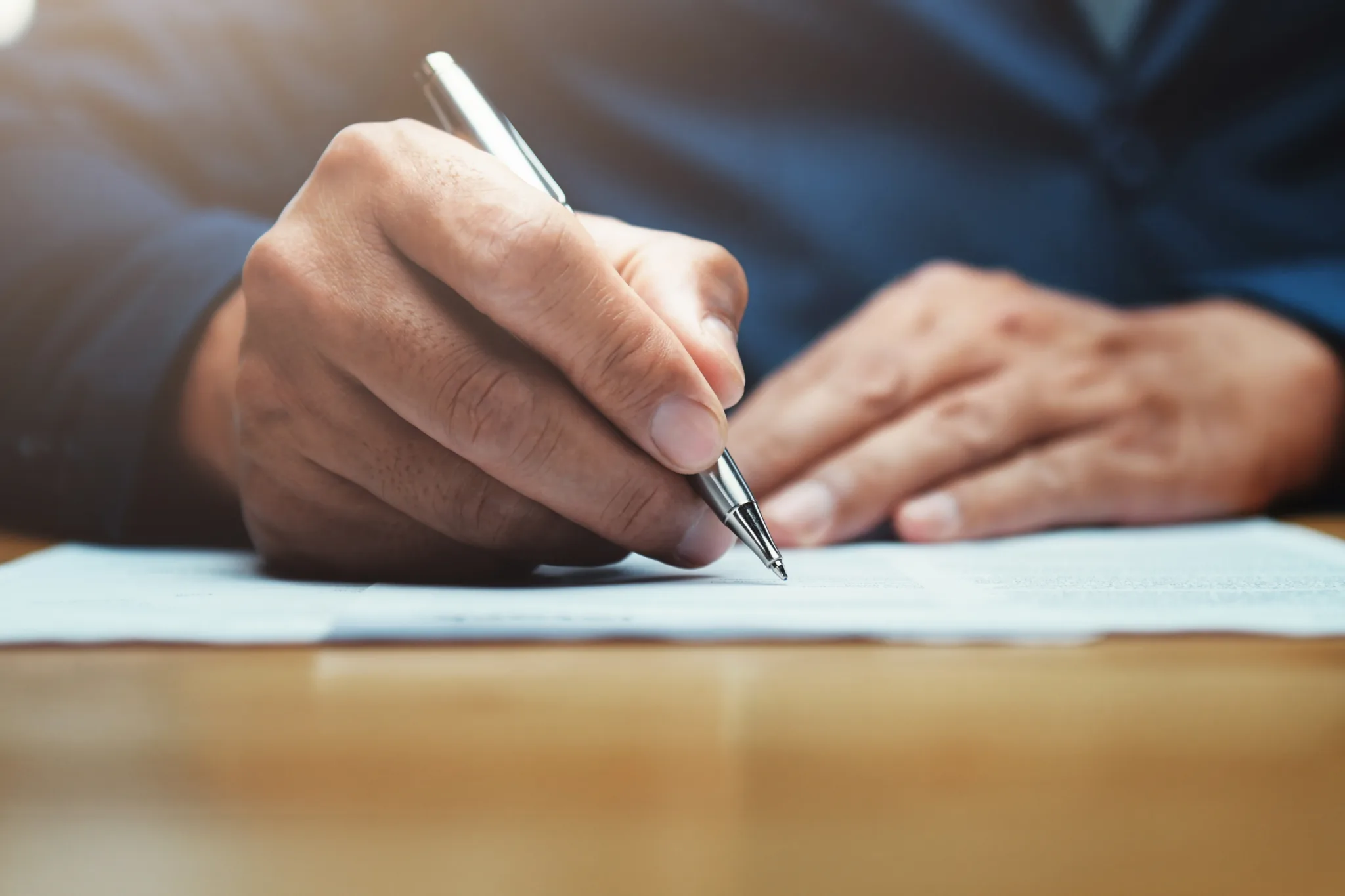Emerging tech may seem like the Wild West when it comes to regulation because of its novelty and innovation. In reality, emerging technologies is one of the most fast-paced and exciting fields of law because it affects every industry in today’s digital world. That being said, because this field addresses new and evolving technologies, it can be confusing to see how attorneys fit into this quickly evolving practice area. This article dives into the meaning of emerging tech, how attorneys help navigate this field, and where you can find further expertise on the topic.
What is emerging technology?
Emerging technologies are either completely new creations or existing tech used in a novel way – both with the ability to shatter the status quo and uncertainty around their full potential.
Some examples of emerging technologies include:
- Generative Artificial Intelligence (AI) products
- Language Learning Modules (LLM)
- Machine Learning
- Digital Assets
- FinTech
- Blockchain
- Web3
- Metaverse
- Application of cybersecurity and privacy
There truth is there isn’t a one-size-fits-all approach to defining this widespread term but emerging tech researchers say there are five attributes to consider if a specific technology is emerging: (i) radical novelty, (ii) relatively fast growth, (iii) coherence, (iv) prominent impact, and (v) uncertainty and ambiguity. You can dive much deeper into others’ definitions and what truly constitutes a piece of emerging technology, but the overall idea is that emerging technologies are so new that people can’t predict the end game of what they can accomplish, and these technologies have the potential to change our everyday lives.
Additionally, policymakers and regulators are grappling with how to appropriately address these new technologies or applications so that consumers and others are protected while innovation is allowed to proceed. In the US alone, we are seeing a myriad of approaches at both the state and federal levels of how to address innovations while simultaneously applying existing laws. The federal level is adopting to further define the differences between emerging technology and critical emerging technologies in an effort to move quickly while protecting consumers in a more consistent way across borders. Many states are taking regulation of emerging technologies into their own hands by restricting the use of emerging tech like facial recognition.
Embracing emerging technologies at a law firm

At Practus, emerging technologies are what made it possible to launch a fully virtual law firm with attorneys across the Americas and clients around the globe. Innovative leaps in tech not only allow us to work more efficiently on an internal level, they also mean our attorneys have unique insights when it comes to representing clients that use, develop, purchase, and sell emerging technologies. After all, it’s easier to represent someone when you are familiar with similar technologies in your daily life. This will be truer than ever with the advances in use of certain generative AI on behalf of clients.
However, simply using technology doesn’t make someone an emerging technologies attorney. This practice area requires experience in multiple disciplines, including regulatory compliance, fund formation, digital asset exchanges, cybersecurity, tax matters, intellectual property, and more with experience in both transactional and litigation work.
Of course, it’s unrealistic to think that a single attorney will have experience in every single aspect of emerging technologies, which is why our emerging technologies practice area is responsive and collaborative to best meet clients’ needs. Our attorneys involve outside consultants when needed, continuously embark on further education, and work with each other to prepare for the uncertainty of what could come next in this field.
How do attorneys counsel on emerging technologies?

Despite feeling like the Wild West, emerging technologies are quickly followed by compliance, regulatory, and tax issues as governing agencies try to offer guidance as quickly as possible before tech gets too far ahead of the law. Emerging technologies also tend to involve large financial transactions, such as funding of development, FinTech compliance, and everything in between.
At Practus, we honed in on five main ways that attorneys can help their client:
1. Product Counsel
Clients that need product counsel are typically technology companies that need advice on legal aspects of their products, which can include SaaS, electric cars, microchip components, etc. Attorneys that work with clients in a product counsel capacity often focus on the intersection of IP, finance, and tax law. They help their clients with patent portfolio management, product launches, tax implications, investment management, product safety, trade secrets, and IP protection.
2. Litigation and Enforcement
Today’s digital world already has significant amounts of legislation and precedent when it comes to how these technologies need to be handled. Some start-ups unintentionally find themselves on the wrong end of enforcement agencies, facing hefty fines, civil claims regarding trademark/privacy issues, or even criminal implications due to violations of legislation. Certainly, there has been a significant uptick in litigation surrounding blockchain related companies.
Attorneys that advise on litigation and enforcement within the emerging technologies practice area counsel their clients on risk management, federal & state investigations, anti-money laundering legislation, cybersecurity, securities litigation, privacy compliance, class action defense, HR & labor law issues, and trademark enforcement/litigation.
3. Legislative and Regulatory
One of the most exciting parts of emerging technologies for attorneys is that each client has a new legal issue, and those issues can change quickly based on new laws. Most business owners in the tech field don’t have the bandwidth to closely monitor potential legislation and regulatory fields.
Attorneys that counsel within this aspect of emerging tech work proactively with clients seeking legislative and regulatory counsel. Our attorneys analyze and track regulations for their clients, draft regulatory responses to pending legislation, act as an expert and lobbyist liaison, and impact future legislation.
This critical area of emerging technologies helps shape the future of this field while preparing clients far ahead of time for what may come.
4. Regulatory Compliance
Compliance in the emerging technologies field can be extremely challenging as many entities are faced with novel legal issues or having to prepare more sophisticated practices and procedures to ensure compliance. Part of what makes an emerging technology emerging is the factor of uncertainty and ambiguity. Clients seeking regulatory compliance get counsel from attorneys in issues such as digital asset custody, broker-dealer requirements, securities law compliance, digital asset fund formation, cybersecurity, privacy, exchanges, FinTech law, auditing, and risk assessment.
5. Transactional Support
Business owners that enter the emerging technologies field typically have two goals in mind: (i) create something new that can change the world; (ii) find a buyer for such innovation that will result in a large transaction. Entities seeking to acquire emerging technologies often have the goals of making their business run more smoothly with the acquisition, filling a current gap they have in their tech portfolio, and purchasing tech that will exponentially increase their potential earnings.
Attorneys in our emerging technologies practice area have experience working with buyers and sellers by offering transaction support in the form of business operations & corporate formation, contract development & negotiation, conducting due diligence, commercial & intellectual property matters, and consortium design & implementation.
I’ve personally been in the emerging technologies area on all sides: an attorney, tech exec, and elected official. This field is exciting, innovative, and not slowing down anytime soon. The emerging technologies practice area includes representing clients from Fortune 100 companies, startups, investment funds, small inventors, regulated entities, and more.
Although the field is widespread across entities, it’s a small group of attorneys worldwide that dive headfirst into these new challenges, innovative risk analyses, and constant continuing education. The challenges that come along with emerging technologies make this field collaborative (and dare I say fun?) with each new client interaction.
You can learn more about our emerging technologies attorneys here or reach out to me directly at Leslie.Katz@practus.com.






